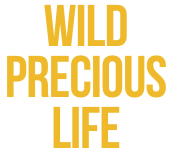02 Oct Tabitha the Cheetah: A Tale of Authenticity Amidst Conformity

This powerful video tells the story of of Glennon Doyle’s unsettling visit to the zoo and Tabatha The Cheetah:
This story stirs something in many of us.
It speaks to the tension between societal expectations and the true, wild nature that lies deep within all of us. A duality that Carl Jung explored in his work through the underlying call to individuation.
Through a Jungian lens, the story could be illustrating:
Archetypal Imprisonment: The zoo setting and the domestication of the cheetah, Tabitha, symbolise the suppression of our wild, authentic self. This mirrors Carl Jung’s concepts of the persona and the shadow – the mask we wear in society versus our repressed true nature.
Synchronous Reflection: The Labrador retriever, Minnie, who’s been raised alongside Tabitha to tame her, could be seen to represent the societal expectations that shape and limit our true selves. Minnie’s joyful chase of the pink bunny mirrors the societal games we play, thinking they bring joy, while our true nature remains chained and unsatisfied.
Awakening of the Self: Glennon’s daughter’s question about Tabitha missing the wild touches on the Jungian idea of individuation, the process of becoming the person we are inherently meant to be. This includes a recognition of Tabitha’s innate wild nature and potential self-realisation.
Confrontation with the Shadow: When Tabitha’s demeanour changes, as she stalks her enclosure’s boundaries, it resonates with the Jungian notion of confronting the shadow – the unconscious part of the personality that contains repressed weaknesses, desires, and instincts. This moment is a glimpse of Tabitha’s authentic, untamed self-breaking through the learned behaviour.
Recognition of the Collective Unconscious: Glennon’s deep connection and empathy with Tabitha perhaps reflect a recognition of universal patterns and instincts, fundamental concepts in Jungian theory. The story emphasises the universal longing to return to one’s authentic, wild nature, suggesting that, like Tabitha, we all have an innate, untamed spirit within, waiting to be recognized.
Key quotes from the story include:
“Doesn’t she miss the wild?” The zookeeper smiled and said “No. Tabitha was born here she doesn’t know any different . This is a good life for Tabitha.”
“I knew she’d say something’s off about my life. I feel restless and frustrated. I have this hunch that everything was supposed to be more beautiful than this. Then she’d look back at the cage. The only home she’s ever known. She’d look at the zookeepers, the spectators and her panting begging best friend the lab. She’d sigh and say:
“I should be grateful. I have a good enough life here. It’s crazy to long for what doesn’t even exist”
“I’d say Tabitha you are not crazy. You are a goddamn cheetah”



No Comments